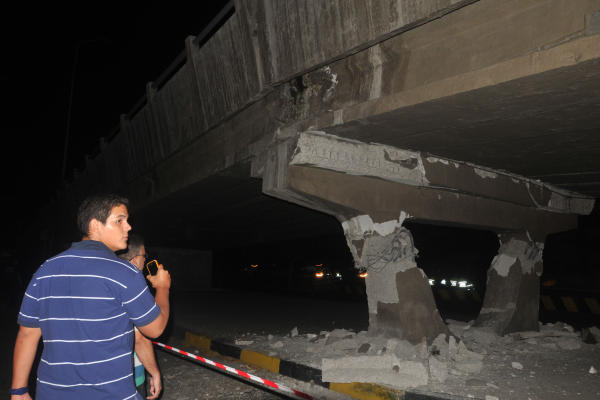MANTA, Ecuador, April 17 – A powerful 7.8-magnitude earthquake as hit Ecuador and killed at least 77 people with more than 500 people injured, said Vice-President Jorge Gla. With the use of tractors and complete bare hands, rescuers tried to reach for survivors among devastated coastal populations with what’s left of unknown number trapped in ruins.
The quake, Ecuador’s largest since 1979, hit at 18:58 on Saturday (23:58 GMT) near the northern town of Muisne. With the 7.8 magnitude quake struck off the Pacific coast on Saturday and was felt around the Andean nation of 16 million people. The aftermath estimates a nearly 600 people were injured, according to initial tallies the government said are likely to increase.
A state of emergency was declared in six provinces, noting that the most affected areas where those coastal ones nearest the quake, Pedernales in particular, a rustic tourist spot with beaches and palm trees. Information was scant from there due to poor communications and transport chaos.”There are people trapped in various places and we are starting rescue operations,” Vice President Jorge Glas stated.
“There are villages totally devastated “Pedernales’ mayor Gabriel Alcivar told local radio, adding that” dozens and dozens” had died in the rustic zone. “What happened here in Pedernales is catastrophic.”
Pedernales
According to authorities there were 135 aftershocks in the Pedernales area. A man begged for help: “Pedernales is destroyed.” In Guayaquil, Ecuador’s largest city ruins and buildings that turned into rubble lay in the streets a, you can see devastating scenes such as a bridge that fell on top of a car. “It was terrifying, we were all scared and we’re still out in the streets because we’re worried about aftershocks,” said Guayaquil security guard Fernando Garcia.
Ramon Solorzano, 46, was leaving with his family, said a car parts merchant in the coastal city of Manta where photos from there showed Red Cross workers arriving, police hunting through debris, a smashed sculpture and badly-damaged buildings.
“Most people are out in the streets with backpacks on, heading for higher ground,” Solorzano said, speaking in a trembling voice on a WhatsApp phone call. “The streets are cracked. The power is out and phones are down.”
President Rafael Correa cut short a trip to Italy to return said that everything can be rebuilt, but lives cannot be recovered, and that’s what is the most hurting in this natural crisis.
